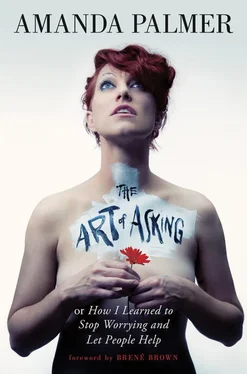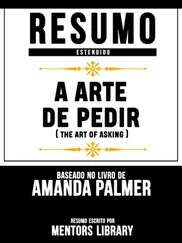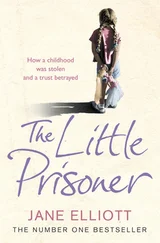Really. And I’ve decided something .
What’s that?
I’ve decided that I’m not going anywhere .
Sorry. What?
I’m not going anywhere , he repeated.
I don’t know what you mean, Neil .
I mean , he said, speaking more slowly, that I’m not. Going. Anywhere. Even if it takes years. I think I’ll stay right here .
Like… here at the corner table? I joked nervously. You mean you’re never going to leave Cafe Gitane ever? That sounds very Neil Gaiman-y .
No , he said, plainly. I’ll leave this café. But I won’t leave you. That’s what I mean. I’m not going anywhere .
Oh , I said. I see. I think .
And I couldn’t think of anything to say after that.
We were both still in other relationships, though it was no secret that they were both foundering.
We parted ways, and I walked down the street thinking:
Did what I think just happened actually happen? Does Neil Gaiman, Celebrated Writer Of Fantasy And Science Fiction Novels want to date me? God, he’s so much older than me , I thought, doing the math. Sixteen years. No way. That’s too much. And he’s famous. Which is kind of great but kind of not. And he’s so… awkward and… British… and… I don’t know. He’d hate me and my life and friends .
We have practically nothing in common , I reasoned. But still, there was something about him. He was so… what was he? He was so…
…kind .
• • •
Sometimes people—almost always men—would walk up to The Bride and, with dramatic ceremony that ranged from the corny to the sublimely tasteful, offer me their wedding rings.
I would clasp my heart, saying with my fluttering eyes:
For meeee?
And I would touch my fingers to my lips, speechless, shrug my shoulders upwards in extreme delight, smile slightly, take the ring, and slip it lovingly onto my gloved pinky.
Thank you for this beautiful wedding ring. I love you .
Then I’d go back to standing still.
Then things would get kind of awkward.
The person would want the wedding ring back.
So we’d stand there, staring at each other.
I’d shake my head.
A pause. A really nervous pause.
Then I’d reconsider, and remove the ring, and start to return it—much to the relief of my new human friend.
Then I’d change my mind.
This game could go on for a while if business was slow.
• • •
Despite the fact that the majority of passersby ignored me (and occasionally sent me into spirals of existential despair), I had come to have a sort of faith in the street, and in the general public, because they would instinctively protect me. I was truly vulnerable up there, but I felt a benevolent force field of human energy around me.
A few times some jerk would grab my money-filled hat and run away with it. But somebody always chased him (and it was always a him) down the street and grabbed the hat back and returned it, often feeling the need to apologize to me, as if to apologize for all of humanity.
I’d thank them with some flowers. They would take them. They understood.
One day, while I was surrounded by a small audience, a mentally ill guy approached me and started spitting and screaming at me in a foreign language. Things reached a whole new level of frightening when he reached up and grabbed my frozen, outstretched arm, trying to pull me off my pedestal. My feet were bound by the skirt beneath my dress. If I fell over, I couldn’t break my own fall.
I didn’t speak or scream, I just looked him right in the eye, as fiercely and imploringly as I could, thinking:
Please, oh god, please let go of me .
But he didn’t. Just as I was about to break character and wrestle myself free, someone from the crowd moved in and grabbed the guy, pulling him off me and dragging him a safe distance away. I didn’t break character. I watched the whole scene play out like a movie. The crowd applauded. I gave the Samaritan a flower, pressing my hands together, a gesture of heartfelt gratitude. Then I got back to work.
A teenage girl once whipped an apple at me from about twenty feet away, just barely missing my face and hitting my collarbone. I kept my balance while one of my friends, who happened to be watching, chased her for three blocks and set her straight.
Drunk people were always a pain in the ass. Friday and Saturday nights could be lucrative but intolerable. One night, a group of wasted frat boys walked by me and one of them stopped, looked up, grabbed me around my legs, and buried his face in my crotch, making drunkenly ecstatic “yummy” sounds.
I looked down and shook my head sadly.
What can you do?
People made me sad sometimes.
But mostly I just got sad if they didn’t want the flower.
• • •
One day I really got the shit scared out of me. I heard a car screech up onto the curb behind my pedestal, and a pair of hands grabbed me around the waist from behind. I heard a voice say,
GET HER!
And three people dressed in black, wearing ski masks, started to tie my hands together. Another snatched all my milk crates and money. They threw me in the back of a van and the driver revved the engine and pulled away, speeding down Mass Ave. One of the black-clad guys took his mask off, giggling uncontrollably: it was E. Stephen, one of my screwball artist pals, who constructed apocalyptic sculptures and devices out of found objects and dead animals. He kept jars of his own toenail clippings for use in future projects.
I sighed and looked at him, rolling my eyes.
Dude… I was WORKING .
• • •
I realize now that I felt chronically guilty about having chosen to be an artist. I didn’t understand this at the time; I just felt a consistent kind of inward torture, pulled towards a life in art while simultaneously feeling foolish for having made that choice. The Fraud Police ate away at me persistently through my twenties; the needling voices simmered below the surface and gnawed at my subconscious in an endless, grating loop:
When are you going to grow up, get a real job, and stop fucking around?
What makes you think you deserve to earn money playing your little songs to people?
What gives you the right to think people should give one shit about your art?
When are you going to stop being so selfish and start doing something USEFUL, like your Sister the Scientist?
If you take those questions and turn them into statements, they look like this:
Artists are not useful .
Grown-ups are not artists .
Artists do not deserve to make money from their art .
“Artist” is not a real job .
• • •
I’ve played in every venue imaginable over the last fifteen years, in fancy old theaters and shitty sports bars, in secret underground piano bars with capacities of forty people, to crowds of thousands in sports arenas.
But I maintain: no performing-art form can ever achieve the condition of The Eight-Foot Bride.
It was like breaking down a compound into its essential elements, then down to an atom, then down to an irreducible proton.
Such profound encounters—like the deeply moving exchanges I’d have with broken people who seemed to have found some sort of salvation in the accidental, beautiful moment of connection with a stranger painted white on a street corner—cannot happen on a safe stage with a curtain. Magical things can happen there, but not this. The moment of being able to say, unaccompanied by narrative:
Читать дальше












